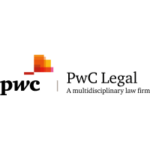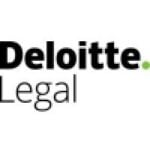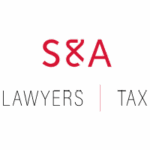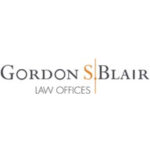-
How often is tax law amended and what is the process?
Under Article 34 of the French Constitution, a tax provision can only be introduced by Law, whether regarding the tax base, rates and collection procedures.
To enter into force, a Finance Bill – of which the draft version is almost always proposed by the Government – must be approved by the Parliament, namely the Senate and the National Assembly, the final say being given to the National Assembly.
The executive power (the Government) is then involved in implementing the tax laws voted by Parliament through Decrees of applications. Tax courts control the compliance of these decrees with the terms and conditions of application provided by the Law.
Tax laws are amended each year by an annual Finance Law (Loi de finances) the purpose of which is to establish the next year’s budget. In the course and/or at the end of the year, Amending Finance laws (Lois de finances rectificatives) are also voted in order to revise the estimated budget initially set force in the Finance Law.
-
What are the principal administrative obligations of a taxpayer, i.e. regarding the filing of tax returns and the maintenance of records?
Individuals subject to French income tax must file an income tax returns every year, usually by the end of May.
Companies subject to French Corporate income tax (CIT) are required to keep itemized regular accounts, which must be kept available to the French Tax Authorities upon request. CIT returns must be filed on the second business day after the 1st of May for companies ending their fiscal year on 31 December. Companies closing their fiscal year on another date are required to file their tax returns within 3 months of the end of their tax period.
Companies subject to French VAT must usually file VAT returns every month or every 3 months.
Companies having employees must also submit every month a return aiming at reporting the wages paid. Companies paying dividends or interests must submit a return aiming at reporting the amounts of dividends or interests paid to individuals.
Tax law requires that tax documentation must be kept for a period of 6 years while accounting law requires accounting records to be kept for 10 years.
However, since the statute barred period can be of 10 years in certain specific situations, individuals and companies are strongly invited to keep records of their tax documents for a 10-year period.
-
Who are the key tax authorities? How do they engage with taxpayers and how are tax issues resolved?
The key regulatory authority is the central French tax administration which depends on the ministry of budget. It heads all the national and local the tax authorities.
Although the French tax administration has adopted a principle of “single interlocutor”, under which any of its emanations is a competent contact, in practice tax issues are dealt with the competent service in charge of it.
Depending on the issue, the size of the company, its tax residence and the amounts at stake, the competent tax service can be either a local tax service of a national service.
Although the tax procedure is of course very strictly framed by Law, the practical process and its length will depend on the issue.
For the simplest tax questions, the local tax services can often be contacted by telephone, email, via the secured messaging system in the taxpayer’s online account (impots.gouv.fr), or by meeting an agent in person. More often however, important tax issues must be brought to the attention of the French tax authorities through the standard tax procedure steps, and eventually by way of a contentious claim.
-
Are tax disputes heard by a court, tribunal or body independent of the tax authority? How long do such proceedings generally take?
Taxpayers can bring a dispute before a tax court, either to contest the outcome of a tax audit or spontaneously when realizing that an undue amount of tax was paid.
Either way, the taxpayer must first file a contentious claim before the French tax authorities (FTA), which have 6 months to instruct the claim. If the FTA reject the claim, whether expressly or implicitly (i.e. after a 6-month silence), the taxpayer can then go to court to challenge this reject.
Disputes regarding income tax, CIT and VAT are brought before administrative courts, while disputes relating to registration fees and the so-called 3% tax (on French real estate held by foreign entities) fall under the judicial jurisdiction.
A tax dispute can lead to a first instance decision, an appeal before a Court of Appeal, and possibly an appeal before one of the French Supreme Courts (Conseil d’Etat or Cour de cassation). Depending on the appeals, such procedures may take between 2 to 12 years.
A tax dispute pending before a Court can also be raised in parallel (under strict conditions) before the French Constitutional Court, which is competent since 2010 to operate a constitutionality of the laws a posteriori.
Finally, also in the course of a pending dispute, the taxpayer may request from the tax court that the issue at hand be referred for a preliminary ruling before the European Court of Justice.
-
What are the typical deadlines for the payment of taxes? Do special rules apply to disputed amounts of tax?
Income tax on wages and pensions received by individual taxpayers is levied directly at source by the paying institution.
Individual taxpayers receiving business income or rental income are directly liable for income tax instalments which are payable either monthly or quarterly.
Companies subject to corporate income tax are liable to four quarterly instalments. After filing their tax return the following year, the final CIT is computed and companies must either pay a supplement of CIT or are entitled to obtain a refund in the event of overpayment.
As a general rule, the amount of tax challenged by a taxpayer remains due, and must therefore be paid upon receipt of the tax assessment notice. If the taxpayer succeeds in his claim, any tax unduly paid may the give rise to a refund (including late payment interest).
It is however possible for a taxpayer, when filing a contentious claim, to apply for a tax payment deferral subject to providing financial guarantees. This deferral is valid until a judgement from the lower court is issued. If the judgement is unfavourable to the taxpayer, tax (plus late payment interest) must be paid even though an appeal is formed against the decision.
-
Are tax authorities subject to a duty of confidentiality in respect of taxpayer data?
Tax officers are subject to a rule of professional secrecy. It is a criminal offence for tax officers to disclose information about taxpayers to a person or body which is not authorized by law to receive such information (notably the courts, the French financial markets authority, the officer in charge of the control of the award and control of the grant of certain aids to taxpayers, the Regulatory authority for online games, the officers in charge of the investigations in matter of competition…).
-
Is this jurisdiction a signatory (or does it propose to become a signatory) to the Common Reporting Standard? Does it maintain (or intend to maintain) a public register of beneficial ownership?
The OECD Common Reporting Standard was transposed into French law by a Law of 29 December 2015 and a Decree of 5 December 2016.
France has adopted requirements for the identification and registration of beneficial owners of corporations, aimed at preventing money laundering and fight the financing of terrorist activities. The decree that implemented the Register of beneficial ownership was signed on 12 June 2017 and entered into force on 1 August 2017.
In a decision dated November 22, 2022, the ECJ ruled that the public accessibility of information relating to companies’ beneficial owners was invalid, as contrary to the fundamental right to privacy. However, the French public UBO register remained accessible in practice until July 31, 2024.
Since July 31, 2024, and in application of EU Directive 2024/1640 of May 31, 2024, only persons with a legitimate interest have access to certain information on beneficial owners (in particular, identity, month and year of birth, nationality of beneficial owners and terms of control exercised by them). Professionals subject to anti-money laundering and anti-terrorist financing obligations (banks, insurance companies, participative finance intermediaries, investment service providers, statutory auditors, lawyers, gaming operators, etc.) and the relevant authorities, however, retain full access to the French UBO.
-
What are the tests for determining residence of business entities (including transparent entities)?
Under French law, the tax residence of a corporation (including transparent entities) is determined on the basis of where its effective place of management is located.
The place of effective management is the place where the strategic decisions in terms of management and industrial or commercial policy necessary for the conduct of the business of the company are taken.
However, under the principle of “restricted territoriality” of corporate tax provided by Article 209-I of the French Tax Code, only profits made on businesses carried out in France are subject to French CIT, regardless of whether the company has its residence in France or not.
No law describes the concept of “business carried out in France”. According to case law, business is carried out in France when a French or foreign company performs regular business on the French territory either through representatives without independent professional status, or as part of operations forming a complete business cycle.
This concept is quite close to the definition of a permanent establishment provided by the OECD model convention.
-
Do tax authorities in this jurisdiction target cross border transactions within an international group? If so, how?
Cross-border transactions within international groups have been a target of the Legislator for many years. Several new requirements were introduced recently, in particular concerning the obligation to provide a transfer pricing documentation which can be made quickly available to the FTA in case of tax audit.
In this context, intra-group cross-border transactions are often audited by the FTA, with the view to control and challenge if need be the transfer pricing policy for a given transaction and to fight against the profit shifting.
-
Is there a controlled foreign corporation (CFC) regime or equivalent?
France has CFC rules (codified in Article 209 B of the French tax code) under which when a French company owns directly or indirectly more than 50% of a subsidiary located in a country with a privileged tax regime, the profits of this subsidiary must be included in the French company’s taxable income.
A subsidiary is deemed located in a country with a privileged tax regime if the CIT paid locally is inferior to 40% of amount of CIT which would have been paid in France if the activity had been performed there.
There is a safeguard provision: to avoid the application of the CFC rules, the French parent company can demonstrate that the foreign subsidiary has an effective industrial or commercial activity conducted from its country of registration.
-
Is there a transfer pricing regime? Is there a "thin capitalization" regime? Is there a "safe harbour" or is it possible to obtain an advance pricing agreement?
11.1. Transfer pricing regime
The French transfer pricing regime aiming at avoiding base erosion and profit shifting is influenced by the OECD work. As a general rule, any international transaction between related parties must be arm’s length.
Under article 57 of French Tax Code, in order to determine the tax owed by a French company which constitutes a group with foreign entities that it either controls or depends on, any profits transferred to those entities indirectly through increases or decreases in purchase or selling prices, or by any other means, must be added back to the French company’s taxable income.
This regime applies when a dependent relationship existed between the parties involved in a transaction, and if a transfer of profits occurred.
French companies are required to provide transfer pricing documentation upon the FTA’s request, and large companies must file specific documentation.
11.2. Thin Cap regime
France has a quite complex system of limitations on the deduction of interest expenses, including thin capitalization rules.
As a general rule, all French companies liable to CIT can only deduct the highest amount between € 3 million and 30% of their “tax Ebitda” (which is the addition of the taxable income, the interest expenses and the net deductible depreciations and provisions). The non-deductible portion of the interests can be reported on future fiscal years without limitation.
In addition, companies deemed thinly capitalized (i.e. when their related-parties’ debts exceed 1.5 time the entity’s equity) are subject to even stricter interest deduction rules under which:
- Some interest expenses will be allocated to the debt independent from the thin capitalization, and deductible as exposed on a pro-rata basis;
- The interest expenses allocated to the debt bound to the thin capitalization will be deductible on a pro-rata basis to the extent of the highest amount between € 1 million and 10% of its “tax Ebitda”.
11.3. Advance pricing agreement
The FTA can grant a unilateral advance pricing agreement to a taxpayer. France can also participate in a bilateral or multilateral advance pricing agreements in accordance with other States.
-
Is there a general anti-avoidance rule (GAAR) and, if so, how is it enforced by tax authorities (e.g. in negotiations, litigation)?
In France, aggressive tax planning is traditionally tackled by application of the doctrine of abuse of law (“abus de droit”). French abuse of law applies when a transaction is artificial or “simulated” and / or the transaction is genuine but its only or main purpose is avoiding tax and benefiting from the literal application of the law that is in contradiction with his author’s objectives.
When the abuse of law is invoked by the FTA during a tax audit, the taxpayer can challenge its application by providing evidence that the transaction was not mainly motivated by tax consideration. When the taxpayer or the FTA disagree on the amount of tax reassessed, any of them can seize a specific competent committee.
Since 1 January 2020, a new specific abuse of law procedure applies to transactions of which the main purpose (as opposed to exclusive purpose) is to avoid taxes.
Some specific anti-avoidance rules also existed, concerning specific regimes such as the French participation-exemption regime. Since 1 January 2019, a general anti-avoidance rule regarding the CIT has entered in force and most of the specific rules have been repealed.
-
Is there a digital services tax? If so, is there an intention to withdraw or amend it once a multilateral solution is in place?
France introduced a 3% digital services tax in July 2019 (article 1 of Law 2019-759 of 24 July 2019), codified in the FTC (article 299 et seq.), with retroactive effect from 1 January 2019.
This so-called “GAFA tax” is meant to be a temporary tax and will be abolished as soon as the first pillar of the OECD agreement is effectively implemented (the details of this reform are still to be negotiated within the OECD).
-
Have any of the OECD BEPS recommendations, including the BEPS 2.0 two-pillar approach been implemented or are any planned to be implemented?
France has implemented several measures as a result of the OECD’s BEPS actions.
Some measures deal with hybrid mismatch arrangements (action 2) and interest deductibility and thin capitalization rules (action 4), in accordance with the EU anti-tax avoidance directives ATAD I and ATAD II.
Other deal with the country-by-country reporting (action 13).
Besides, France has signed and ratifies the Multilateral Instrument i.e. the MLI (action 15), and agreed to amend its tax treaties in line with several OECD issues, such as treaty shopping (Action 6), definition of a permanent establishment (action 7), or transfer pricing documentation (action 8, 10 and 13).
France has not planned yet to add changes to its existing CFC rules (action 3). However, they might do so depending on the results of the G20/OECD’s II pillars global work on tax challenges arising from the digitalization of the economy.
-
How has the OECD BEPS program impacted tax policies?
The fight against international tax evasion and fraud is at the heart of France’s tax policy. Most of the recent legislative provisions concerning international taxation are directly inspired by the BEPS’ recommendations – for which France has been a significant initiator and contributor – and by the EU’s related works (declaration of aggressive tax arrangements, limitation of interest deductibility, etc.)
-
Does the tax system broadly follow the OECD Model i.e. does it have taxation of: a) business profits, b) employment income and pensions, c) VAT (or other indirect tax), d) savings income and royalties, e) income from land, f) capital gains, g) stamp and/or capital duties? If so, what are the current rates and how are they applied?
a) France has a main corporate income tax applying to business profits, at a standard rate of 25% in 2025.
As a general rule, CIT is assessed on the company’s taxable income, corresponding to its accounting profit with many adjustments. Some specific exemptions and low-rate regimes can apply.
Individuals performing a business are subject to personal income tax on the business profits.
b) Employment income and pensions as well as income from land received by individuals are subject to income tax.
c) European VAT rules apply in France. The standard VAT rate is 20%, and three reduced rates (10%, 5.5% and 2.1%) may apply depending on the nature of goods or services.
Companies (French or foreign) which are subject to VAT on less than 10% of their preceding year’s turnover may alternatively be subject to a specific tax on wages, based on the amount of salaries paid to its employees, at progressive rates between 4.25% and 13.60%.
d) Savings income and royalties form part of the CIT taxable basis, being specified that favourable regimes may apply.
e) Income from land is also part of the CIT taxable basis (see a. above). As a general rule however, real estate companies (i.e. companies of which the assets mainly consist in real property) are subject to specific rules in comparison to standard industrial or commercial businesses.
A territorial economic contribution (“TEC”), which is a local tax levied by the French departments and regions, may also be due. It is made up of two components, namely a “property-based” contribution, assessed on the rental value of the real property used for the company’s business; and an “added value” contribution assessed on the added value generated by the business on a yearly basis. The repeal of this contribution, originally scheduled for 2024, has been postponed to 2030.
f) As a general rule, capital gains are included in the CIT basis and then subject to corporate tax as explained above.
However, under a favourable “participation exemption” regime, capital gains on the sale of shares qualifying as such may benefit from a partial exemption.
Other favourable regimes may apply. In particular, capital gains on the sale of intellectual property, patents and assimilated assets are, under certain conditions, subject to corporate tax at a reduced rate of 15%. Capital gains on certain qualifying venture capital, mutual funds and investment companies, may, under certain conditions, benefit either from a reduced rate of taxation of 15% or from a full exemption.
Finally, capital gains on the sale of listed shares of real estate companies are subject to a 19% CIT rate (standard CIT rate however applies to capital gains on the sale of non-listed real estate companies’ shares).
g) Registration duties are due on the transfers of company shares, real estate and goodwill, at different rates.
Stamp duties are collected when performing certain administrative formalities or drafting of certain documents; they are also a way of paying for the delivery of certain documents.
-
Is business tax levied on, broadly, the revenue profits of a business computed in accordance with accounting principles?
As a general rule, the companies’ taxable income is determined by adjusting accounting profits and losses in conformity with specific tax regulations.
The major adjustments consist in adding back to the accounting profit the CIT itself as well as certain expenses considered unnecessary or extraneous to the purposes of the company, such as grants and subsidies granted to other companies. Some provisions or depreciations may also be limited for French corporate tax purposes.
Some income is however subject to specific tax provisions (notably, certain long-term capital gains, industrial property and trademarks, and income from subsidiaries).
-
Are common business vehicles such as companies, partnerships and trusts recognised as taxable entities or are they tax transparent?
As a general rule, businesses are conducted in France through limited liability companies subject to corporate income tax. Three main corporate forms are designed for business purposes:
- For small and medium-sized businesses, the société à responsabilité limitée (SARL) (that is, a limited liability company) and the société par actions simplifiée (SAS) (that is, a simplified joint-stock company)
- For large businesses, the société anonyme (SA) (that is, a classic joint-stock company).
In addition to this, there are different types of legal business forms in France which could be compared to the common-law general or limited partnerships: the sociétés en nom collectif (SNC) and sociétés en commandite (SCS or SCA) which are commercial concerns; the sociétés civiles, which are civil concerns, including in particular the société civiles immobilières (SCI). Except for the SCA, these are all look-through companies for tax purposes.
Foreign trusts are not recognized as taxable entities, since the trust relationships have remained unknown to French civil law although long recognized by courts. Assuming a trust is involved, in most cases the business is in any case conducted through an underlying company subject to CIT.
-
Is liability to business taxation based on tax residence or registration? If so, what are the tests?
In France, only profits made by businesses operated in France are liable to corporation tax, regardless of whether the company is registered in France or not.
In other words, profits made by a French company resulting of businesses conducted abroad are not subject to French CIT while a foreign company is liable to French CIT only on its profits resulting of a business conducted in France (with no possibility to offset foreign losses against such profits).
For more details concerning the conduction of business in France, see question 8.
-
Are there any favourable taxation regimes for particular areas (e.g. enterprise zones) or sectors (e.g. financial services)?
French legislation provides for multiple grants and tax incentives to attract new investors. They take the form of tax credits and exemptions at both a national and regional level.
Among others, the “Research Tax Credit”, based on the research and development expenditure incurred by any trading company located in France, regardless of sector and size, or the temporary exemption arrangements for innovative start-ups and new businesses, can be noted.
-
Are there any special tax regimes for intellectual property, such as patent box?
France has long had a patent box regime. It enables businesses to benefit from a reduced taxation rate of 10% on the royalties perceived or on the sale of the intellectual property, if several conditions are met.
The patent box has been recently reformed following the new EU and OECD “nexus” approach, to correlate the benefits from the regime with the level of research expenses.
-
Is fiscal consolidation permitted? Are groups of companies recognised for tax purposes and, if so, are there any jurisdictional limitations on what can constitute a tax group? Is there a group contribution system or can losses otherwise be relieved across group companies?
French tax law provides a tax consolidation regime (intégration fiscale), allowing a parent company to be liable for corporate tax on behalf of its whole group.
The consolidated group includes French subsidiaries (foreign subsidiaries are excluded) which are liable to corporate tax and have a share capital of which 95% is held (directly or indirectly) by the parent company. A subsidiary can also be part of a consolidated group when more than 95% of its share capital is held indirectly by a foreign EU company.
Under the tax consolidation regime, profits and losses incurred by all companies of the French group are aggregated to determine a tax integrated net result.
As French corporate tax is applied on a strict territorial basis, neither losses incurred abroad by a company running a business in France nor losses incurred by its overseas subsidiaries can be offset against profits realized in France. This is a major drawback for French companies seeking to invest abroad.
-
Are there any withholding taxes?
France levies withholding taxes on different flows: dividends, royalties and capital gains. As a general rule, no withholding tax is levied on interest paid by a French company, except of course when the recipient is resident in a non-cooperative country.
Unless tax treaties state otherwise (which is very often the case), dividends are subject to a French withholding tax at the rate of:·
- 12.8% when paid to non-resident individuals;
- 25% when paid to non-resident companies; and
- 75% when paid to residents of a non-cooperative state, i.e. a state which has not signed an exchange of information treaty with France (or does not actually apply it).
Under the EU Parent-Subsidiary Directive, dividends distributed by French subsidiaries to EU parent companies are exempt from withholding tax, if, as a general rule and among other conditions, the recipient holds 10% or more of the shares of the subsidiary for at least two years.
Unless tax treaties state otherwise, royalties paid to non-resident companies are, as a general rule, subject to a withholding tax at the CIT rate (25%). When the recipient is resident in a non-cooperative country, royalties are subject to a 75% withholding tax.
The sale of a real estate property located in France by a foreign company is subject to a withholding tax at the CIT rate (25%). Depending on the seller’s country of residence, the taxable basis of this withholding tax may vary.
A withholding tax is also levied in case of sale of shares by a foreign company, which varies depending on the quality of the company sold and on the quality of the seller.
-
Are there any environmental taxes payable by businesses?
Energy products are liable to the following indirect taxes: the domestic consumption tax on energy products (taxe intérieure de consommation sur les produits énergétiques), calculated on volumes or bulk quantities (euros per hectolitre, for example for fuels like diesel and unleaded petrol), the domestic consumption tax on natural gas (taxe intérieure de consummation sur le gaz naturel), the domestic consumption tax on coal (taxe intérieure de consommation sur les charbons) and the domestic consumption tax on electricity.
In addition, a general tax on polluting activities (taxe générale sur les activités polluantes) was created in 1999 as an incentive to environmental protection on the basis of the “polluter pays” principle.
-
Is dividend income received from resident and/or non-resident companies taxable?
As a general rule, dividend income is subject to tax whether it comes from resident and/or non-resident companies.
However, according to the French parent-subsidiary tax regime, dividends benefit from a 95% exemption for CIT purposes if two conditions are met :
- the French company owns more than 5% of the shares of the distributing company
- it has held the shares for more than two years.
Obviously, this favourable regime does not apply when the subsidiary is resident in a non-cooperative state or territory.
-
What are the advantages and disadvantages offered by your jurisdiction to an international group seeking to relocate activities?
France offers several tax competitive advantages, from its amortization and depreciation policy, its favourable research tax credits, its participation-exemption regime or its favourable tax consolidation regime. France also lowered its CIT rate from 26,5% to 25% in 2022.
For international tax purposes, it should be noted that France benefits from a very broad tax treaties network (approximately 130 bilateral income tax treaties are currently in force).
Depending on the activity to relocate, a preferential tax regime might also apply (see question 19 and 20).
Last but not least, a favourable tax regime has been implemented for shareholders domiciled in France: capital gains and dividends are taxed at a 30% flat rate (that includes social contributions).
France: Tax
This country-specific Q&A provides an overview of Tax laws and regulations applicable in France.
-
How often is tax law amended and what is the process?
-
What are the principal administrative obligations of a taxpayer, i.e. regarding the filing of tax returns and the maintenance of records?
-
Who are the key tax authorities? How do they engage with taxpayers and how are tax issues resolved?
-
Are tax disputes heard by a court, tribunal or body independent of the tax authority? How long do such proceedings generally take?
-
What are the typical deadlines for the payment of taxes? Do special rules apply to disputed amounts of tax?
-
Are tax authorities subject to a duty of confidentiality in respect of taxpayer data?
-
Is this jurisdiction a signatory (or does it propose to become a signatory) to the Common Reporting Standard? Does it maintain (or intend to maintain) a public register of beneficial ownership?
-
What are the tests for determining residence of business entities (including transparent entities)?
-
Do tax authorities in this jurisdiction target cross border transactions within an international group? If so, how?
-
Is there a controlled foreign corporation (CFC) regime or equivalent?
-
Is there a transfer pricing regime? Is there a "thin capitalization" regime? Is there a "safe harbour" or is it possible to obtain an advance pricing agreement?
-
Is there a general anti-avoidance rule (GAAR) and, if so, how is it enforced by tax authorities (e.g. in negotiations, litigation)?
-
Is there a digital services tax? If so, is there an intention to withdraw or amend it once a multilateral solution is in place?
-
Have any of the OECD BEPS recommendations, including the BEPS 2.0 two-pillar approach been implemented or are any planned to be implemented?
-
How has the OECD BEPS program impacted tax policies?
-
Does the tax system broadly follow the OECD Model i.e. does it have taxation of: a) business profits, b) employment income and pensions, c) VAT (or other indirect tax), d) savings income and royalties, e) income from land, f) capital gains, g) stamp and/or capital duties? If so, what are the current rates and how are they applied?
-
Is business tax levied on, broadly, the revenue profits of a business computed in accordance with accounting principles?
-
Are common business vehicles such as companies, partnerships and trusts recognised as taxable entities or are they tax transparent?
-
Is liability to business taxation based on tax residence or registration? If so, what are the tests?
-
Are there any favourable taxation regimes for particular areas (e.g. enterprise zones) or sectors (e.g. financial services)?
-
Are there any special tax regimes for intellectual property, such as patent box?
-
Is fiscal consolidation permitted? Are groups of companies recognised for tax purposes and, if so, are there any jurisdictional limitations on what can constitute a tax group? Is there a group contribution system or can losses otherwise be relieved across group companies?
-
Are there any withholding taxes?
-
Are there any environmental taxes payable by businesses?
-
Is dividend income received from resident and/or non-resident companies taxable?
-
What are the advantages and disadvantages offered by your jurisdiction to an international group seeking to relocate activities?





























